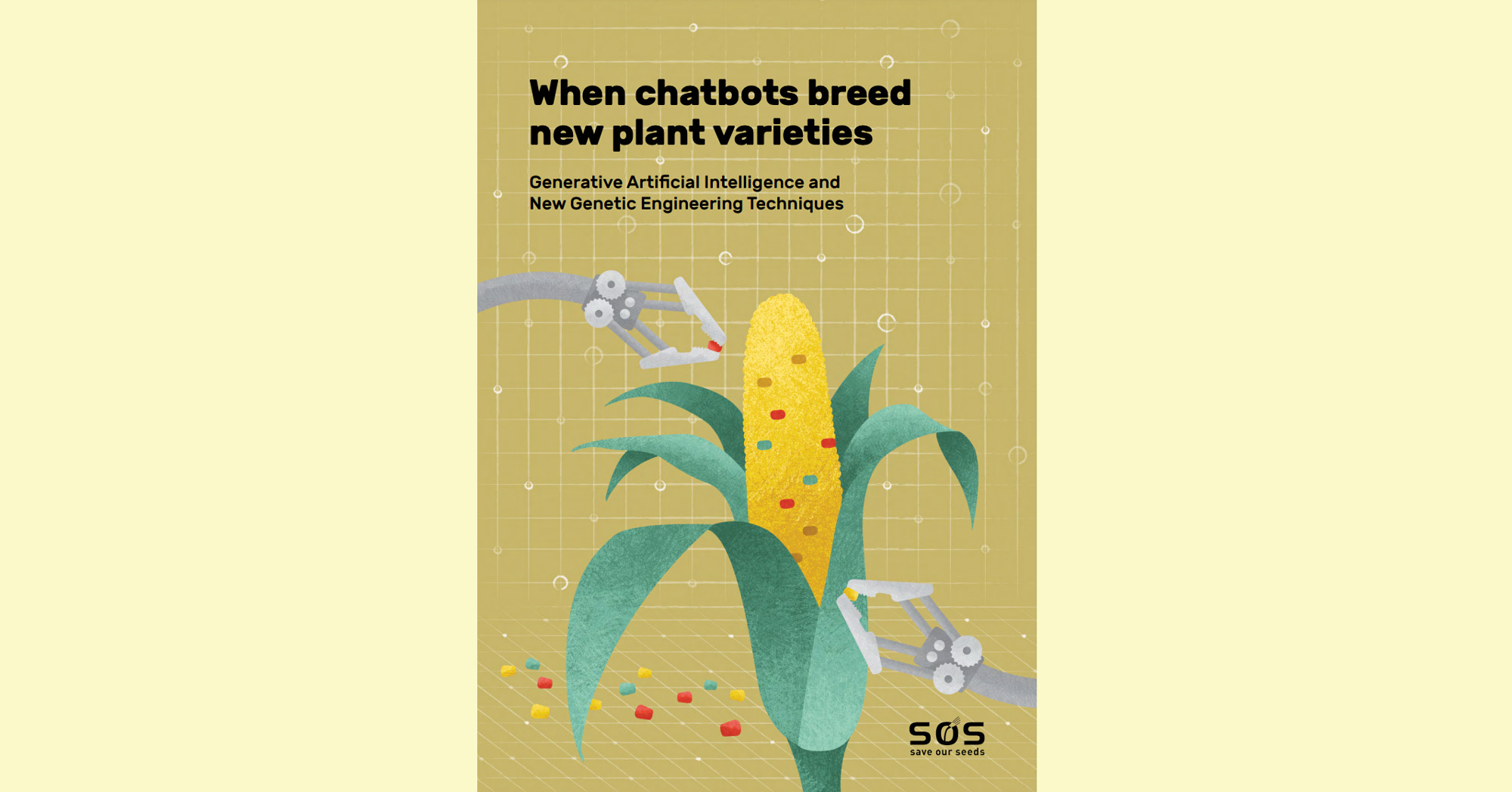
AI technologies now enable developers to even create "new-to-nature" proteins and organisms, which could pose previously unknown risks
A new report released today by Save Our Seeds highlights the increasing use of generative Artificial Intelligence (AI) in the development of GM plants, raising significant new concerns about their safety.[1]
These developments come at a time when the European Union (EU) is considering a far-reaching deregulation of GM plants engineered with gene-editing technologies such as CRISPR-Cas.[2] Under draft EU rules, most gene-edited plants would bypass existing EU requirements for GMO risk assessments, traceability, and consumer labelling.[3]
The proposed rules assume that developers are making only small genetic modifications and that these changes could also be achieved through conventional breeding. These assumptions have long been disputed.[4] With the rise of AI-driven genetic engineering, they have become even more questionable.
AI technologies now enable developers to even create "new-to-nature" proteins and organisms, which could pose previously unknown risks.
If the EU moves forward with this deregulation, GM plants created by automated AI systems could enter the market without detection method, safety testing or consumer labelling, exposing EU citizens and the environment to previously unknown hazards.
Franziska Achterberg, Head of Policy and Advocacy at Save Our Seeds, said: “The convergence of these two technologies amplifies the weaknesses of gene editing — such as unintended side effects — by adding known shortcomings of generative AI, including the ‘black box’ effect, hallucinations, and data distortions.”
Achterberg added: “Rather than dismantling essential safeguards, the EU should establish forward-thinking GMO regulations that strengthen its oversight and control of genetically engineered plants, addressing the new challenges arising from these technological developments.”
Notes
[1] The report is published here, along with a briefing prepared by Save Our Seeds.
[2] The term ‘gene editing’ (or ‘genome editing’) refers to a suite of new genetic engineering techniques. The most prominent technique is CRISPR-Cas. Besides the intended changes, gene editing also causes unintended genetic alterations that can affect the products’ safety for people and the environment. The long-term health and environmental impact of GM crops engineered with gene editing is yet untested.
[3] European Commission proposal for a new regulation on plants produced by certain new genomic techniques, July 2023. https://food.ec.europa.eu/plants/genetically-modified-organisms/new-techniques-biotechnology_en#commission-proposal-on-plants-obtained-by-certain-new-genomic-techniques
[4] See for example, warnings by French food safety agency ANSES and German nature protection agency BfN.
Source: Save Our Seeds










